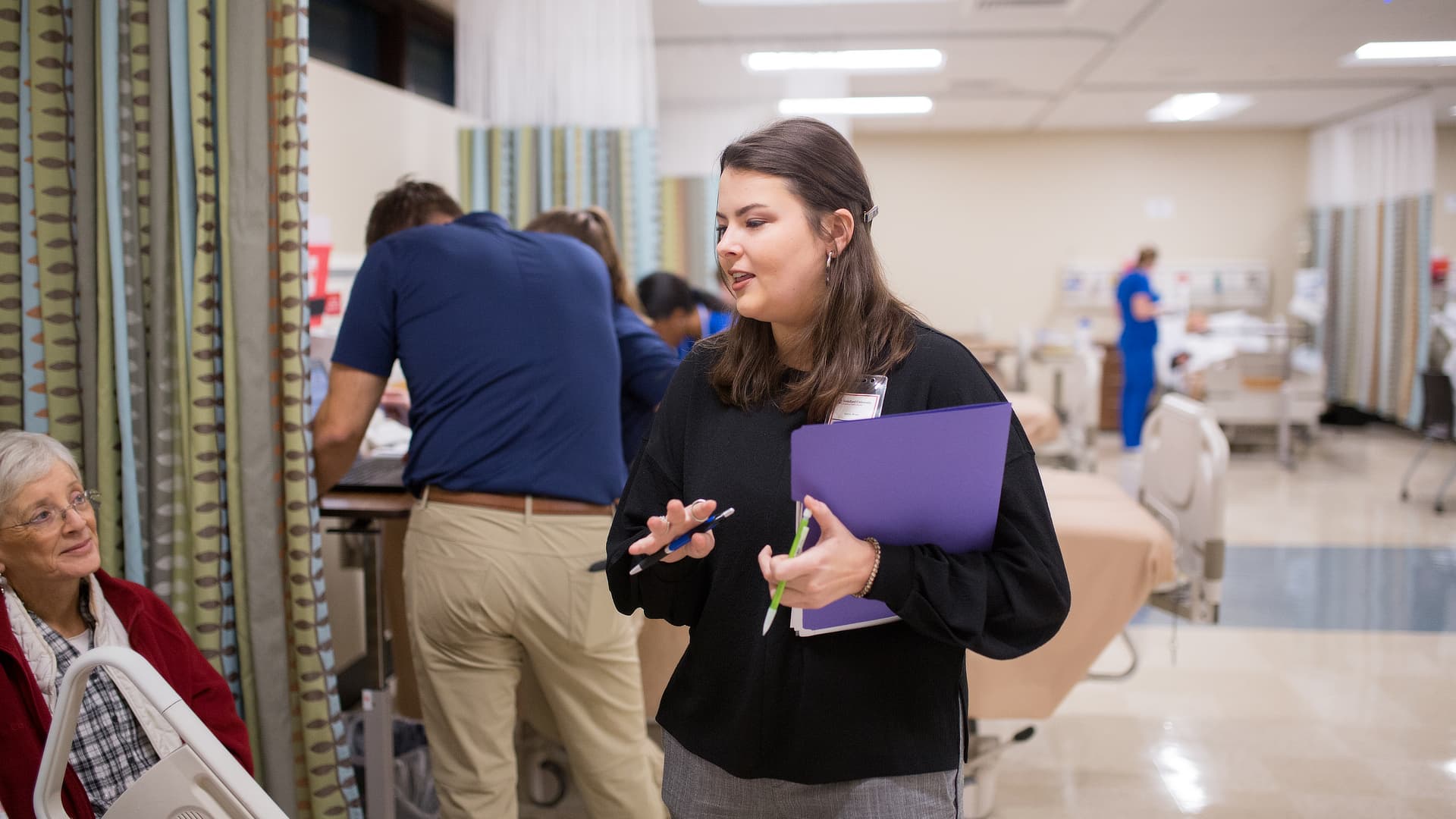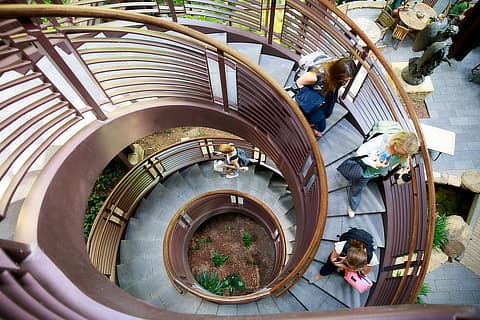Social work is a practice-oriented profession and requires mastery of a vast array of helping skills that can only be developed through practical experience. As such, the field experience is part of the signature pedagogy of social work.
Samford’s Master of Social Work students receive practical experience through an integrative field internship than spans multiple semesters. In conjunction with the program's field director, students are matched with a site that aligns with their personal interest to develop necessary skills as advanced social work practitioners.
With more than 200 unique field opportunities available locally, nationally and internationally students are able pursue their passion while gaining professional experience.
A Personalized Experience
While some social work programs simply assign a student’s field placements without input, Samford’s M.S.W. program takes a different approach. We want these experiences to be personalized for students, aligning their placements with their passions, career interests and goals. This starts with conversations with our director of field education, who will be meet with you individually to hear your desire and then work to match you with the ideal placement site.
Common Field Settings
- Education

- Military/Veterans
- Criminal Justice/Corrections
- Medical/Healthcare
- Mental Health
- Clinical Mental Health
- Substance Use
- Developmental Disabilities
- Geriatric/Aging
- Child Welfare//Foster Care/Adoption
- Non Profit Management/Administration
- Advocacy/Policy
- International Work
- East Lake Initiative (ELI) Thrive

- Birmingham Recovery Center
- Crisis Center of Birmingham
- JBS Mental Health Authority
- Spring Valley School
- Children’s Hospital
- Jefferson County Public Defender’s Office
- Elder Care Advocacy
- Butterfly Bridge Child Advocacy Center
- Inspiritus
- WorkFaith Birmingham
- Department of Human Resources
Distance Field Placement
 Samford’s MSW program offers distance field placement options to students in their final year. Domestic and international opportunities offer learning experiences that facilitate social work skill development and service in unique settings.
Samford’s MSW program offers distance field placement options to students in their final year. Domestic and international opportunities offer learning experiences that facilitate social work skill development and service in unique settings.
How does a distance placement work?
Distance placements occur in the final semester of the concentration year, so the student would take both Field Placement III and Field Placement IV concurrently in the final semester. This means, the student would have to complete 500 hours of field placement in one semester.
How is other course work completed?
Most required courses can be completed via online learning technology. Courses such as Concentration Specialization Seminar and Applied Research can be structured so the focus of the work is applicable to the field placement and can be completed while on location. Electives can be completed during another semester. Once a student expresses interest in a distance placement, the specific course of study can be reviewed and discussed.
Will doing a distance placement affect graduation dates?
For most students, the graduation date should not be affected, provided the course work can be completed during a distance placement.
What is the process for selecting a distance placement?
Distance placement can take time to finalize due to the constantly changing circumstances around the world. It is important to express interest as soon as possible. Students need to contact the Director of Field Education no later than the end of the spring semester of the foundation year. Full-time Advanced Standing students need to contact the Director of Field Education during their first summer term.
What costs is the student responsible for?
Tuition for a distance placement is the same as for a local placement. Students who enroll in a distance placement are also responsible to pay for additional costs related to the placement, including living expenses and travel expenses.

“A unique aspect of our program is the opportunity students have to meet with faculty individually and customize their field placements in a joint venture integrating their passions and callings.”
Lyndsay C. Clark, MSW, LICSW, MDiv
Director of Field Education, Instructor


